Gabrielle Moss is an associate lifestyle editor at Bustle, and has written for GQ.com, The Hairpin, The Toast, Bitch, Nerve, the New York Daily News. She uses her sharp sense of humor and and command of the written word to bring bold new views on topics such as mental health, gender equality, periods, and “patriarchal nonsense.” In this interview she opens up to us about her ADHD story.
Name, Age: Gabrielle Moss, 33
Occupation: Associate Lifestyle Editor, Bustle.com
City: New York
Diagnosis type: ADHD, Inattentive
Age of ADHD Diagnosis: 28
What was life like before your ADHD diagnosis?
Being undiagnosed caused a lot of problems in my childhood — when I had trouble paying attention to things, I was told that I was just being a brat and acting spoiled.
I knew I wasn’t doing it on purpose but struggled to come up with any better explanation, so I kind of bought into it and became very confrontational. I got heavily into my local punk music scene as a teenager, which, in retrospect, was full of other kids who were struggling in school/ life because they had undiagnosed ADHD or other learning disorders. It was a community where we could all be celebrated for being creative or passionate about our beliefs, rather than only celebrated for our ability to follow directions (which is what school usually felt like to me), so it was a really important place for me.
I still felt a lot of self-loathing, and wondered why I seemed to always be disappointing everybody. Everyone I knew — all the way through my 20s — thought I was just self-sabotaging when I didn’t finish things or got distracted, and I got so frustrated by my inability to explain my own behavior that I was very self-destructive for a very long time.
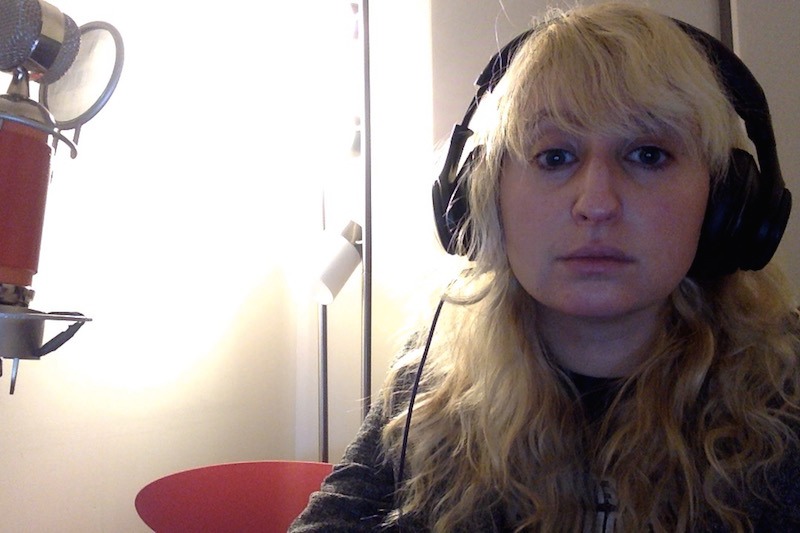
I graduated from college convinced that I didn’t do well in school because I didn’t like the environment; a lot of counselors and therapists I encountered along the way agreed with me, and thought I’d have a better time in the working world, where I could focus solely on a career that interested me.
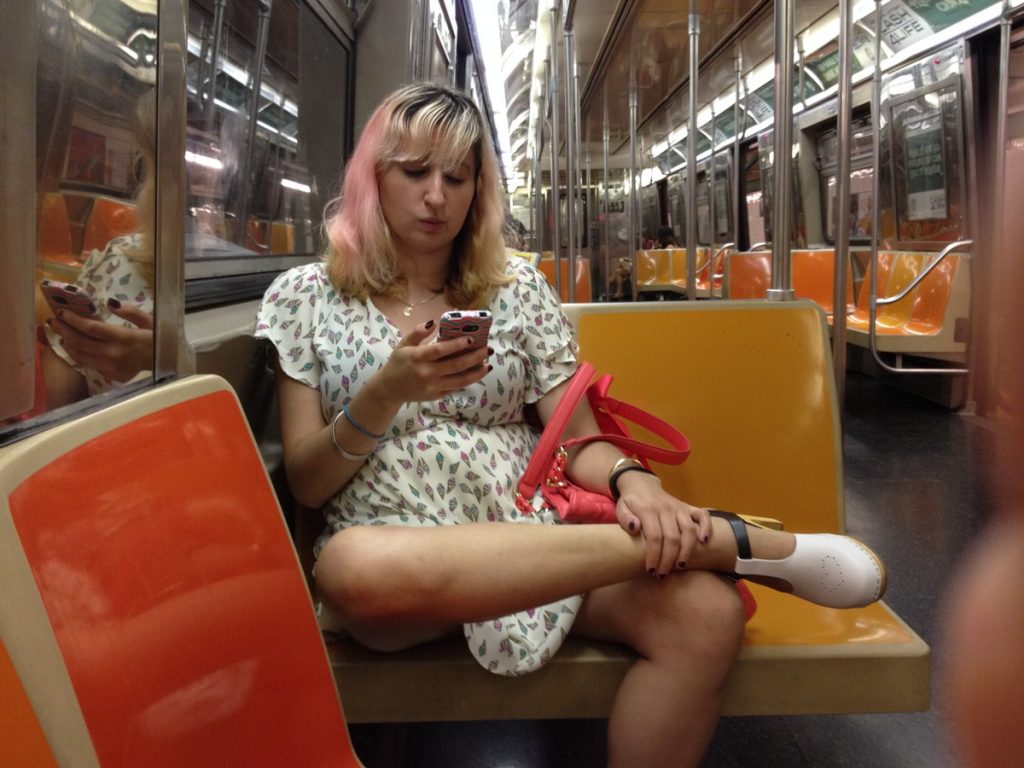
Photograph from Gabrielle’s recent article in Bustle: “I Sat Like A Guy on the Subway for Three Days”
How did you feel once diagnosed? what was the experience like?
I was in denial for a little while – I initially went on meds that were the wrong dosage for me, decided that that experience meant I “didn’t really” have ADHD, and tried to forget about my diagnosis for a few months.
I was still so afraid of the stigma, and I had major imposter syndrome — I thought that when people found out, they would think I was trying to make excuses for my problems. Which feels so absurd to me now, since being open about my diagnosis has only improved my life, and I don’t think the fact that people “know” has held me back professionally at all. But I was really scared for a while. It took at least a year to accept that having this information about myself was only going to make things better.
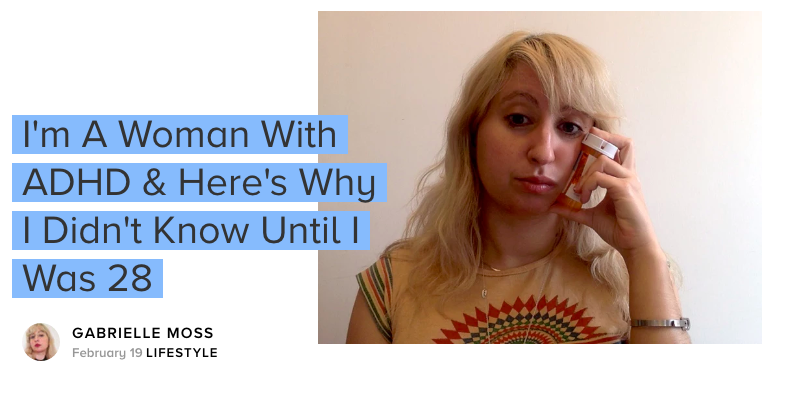
How did you get into your career as an editor?
Tell us about one accomplishment you’re really proud of
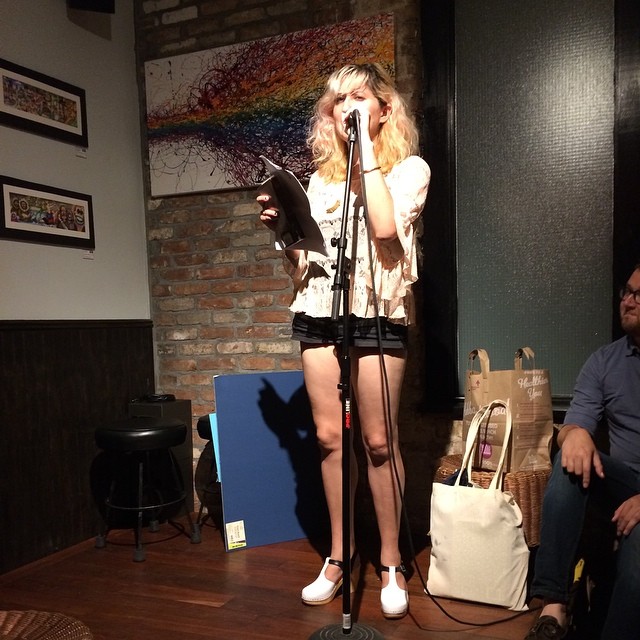
What are your ADHD superpowers?
Tell me a funny story about you and ADHD
Misplacing keys at inconvenient times has kind of been the theme of my life. House keys, office keys, bike lock keys — if I don’t somehow attach them to my body, they basically evaporate. So, of course, one Friday night at 9pm, I realized that in my hurry to leave the office, I left my key chain — which included my filing cabinet keys, my house keys, and the keys that would have let me back into the office — on my filing cabinet. My husband was out of town and none of my work friends were picking up their phones, so I ended up having to bust in on a neighbor’s Tinder date and sleep on her couch. You win this round, keys!
What strategies do you use to overcome ADHD symptoms?
The biggest challenges have been organization and focus, and I’ve experimented with different strategies, with varying degrees of success. For organization, I have a million hyper-specific folders on my computer, so I can find whatever it is I’m trying to find, and I keep a ton of organizational lists on my Google drive — what’s due when, where I am with various projects, etc. I also use Google calendar to plan every single event in my day. I also have a lanyard sewn into a few of my purses to hook my keys on, so that it is really, really hard to lose them.
I loved Heather Hogan’s writing on Autostraddle about ADHD. She’s a great writer, she’s funny, and her advice is profoundly on point (her recommended white noise app resources are probably why I still have a job).
What does ADHD feel like? How would you explain the experience to someone who’s never heard of it?
Honestly, I feel like I have such a minimal understanding of what a non-ADHD brain feels like, I would actually like someone to explain that to me! But if I were to try to explain it, I’d probably say that, for me, it’s about having a constant stream of ideas, and then having a very difficult time filtering them and figuring out their actual order of importance. My biggest example is always:
Imagine having the best work-related idea of your life, starting to work on it, and then suddenly thinking “I NEED TO REORGANIZE MY GYM CLOTHES STORAGE SYSTEM RIGHT NOW” and wandering away to go do that.
One piece of advice you would give to your younger self?
I wish I could have been less hard on myself about my symptoms. I really bought into societal ideas about how anyone who struggles to stay organized or focused is a loser, and so I hid my problems instead of asking for help — which only made things worse. I genuinely thought I was a bad, useless person because I couldn’t complete certain tasks in the way I was told to, and now I am a bit sad about all that time I wasted hating myself.
What would you want to say to other women recently diagnosed with ADHD?
Connect with other women with ADHD! Every time I meet another woman with ADHD, I feel a little bit less alone, less afraid, less defective. Talking to other women with ADHD — even when you’re just blowing off steam about something silly, like how you kept getting distracted the last time you were having sex — has been a godsend for me.
What is one myth about ADHD that you want to dispel
That it has anything to do with intellect. One of the reasons I struggled to embrace my diagnosis is that so much of my self-image was tied up with being seen as “smart,” and so many of us are raised to believe that “ADHD = unintelligent.” It’s a lazy stereotype that allows some parents/ educators to just write kids with ADHD off, instead of taking the time to figure out how to actually teach them. If any teenagers are reading this: you’re not dumb just because you keep quitting books in the middle, ok?
What do you wish the world knew or appreciated about women with ADHD?
I feel like women get shamed way more than men for being messy or disorganized — a guy who has papers piled everywhere and cream cheese on his tie can be thought of as a distracted genius, but a lot of people see, say, a young woman with a cracked phone screen and a purse with pen stains on it and immediately think she’s an idiot, no matter what words are coming out of her mouth.
This kind of thinking is obviously oppressive to all women, not just those with ADHD, but I feel like it’s extra hard on us, because it often feels like appearing “perfect” is part of being taken seriously as a woman.
I wish the world would understand that women can be late for appointments, keep a messy desk, or struggle to find their keys, and also be geniuses.
ADHD can cause really serious problems sometimes, of course, but often, the problems it causes on a day-to-day basis are kind of small, and I wish we’d stop punishing women extra-hard for them.
How did you feel when you found out about Kaleidoscope Society?
Women with ADHD are still so isolated from one another — not because there aren’t many of us, but because so many of us are encouraged to keep our diagnosis a secret. I was so relieved to find out about KS — not just because it’s great to hear from so many different women with so many different experiences in one place, but because its existence alone is a powerful symbol that women with ADHD don’t have to be ashamed of ourselves.
With resources like this, we can support each other, and not think negative things, like, “Oh god, I’m such a flake, what’s wrong with me.” Instead, we can think, “Yeah, this is who I am — and I’m still awesome and a hard worker and have great ideas, so f*cking deal with it.”

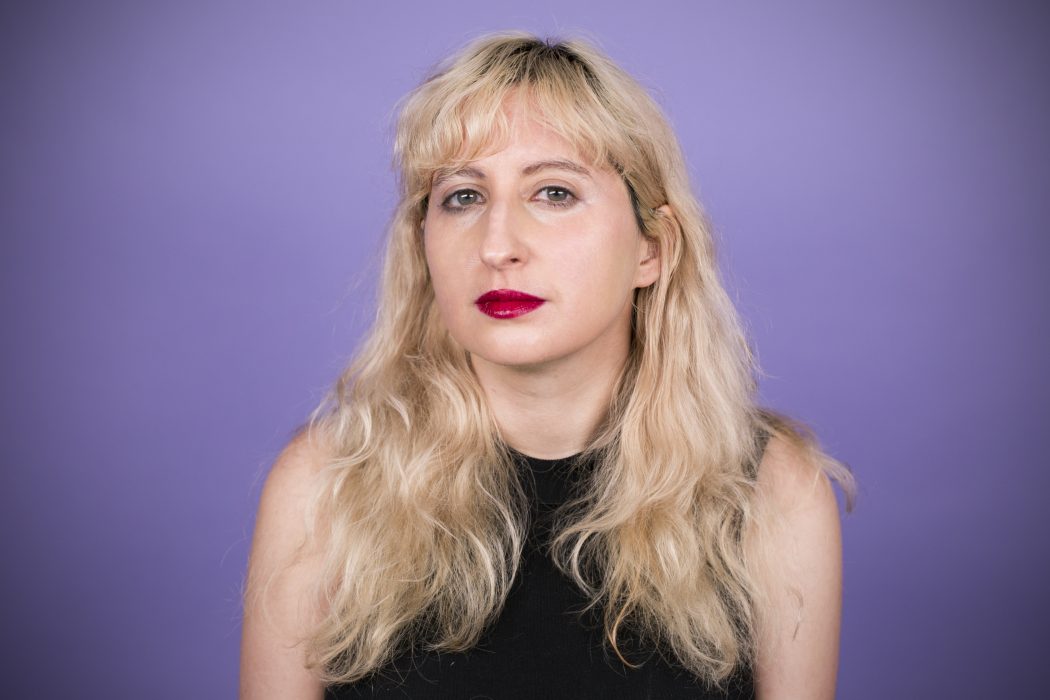
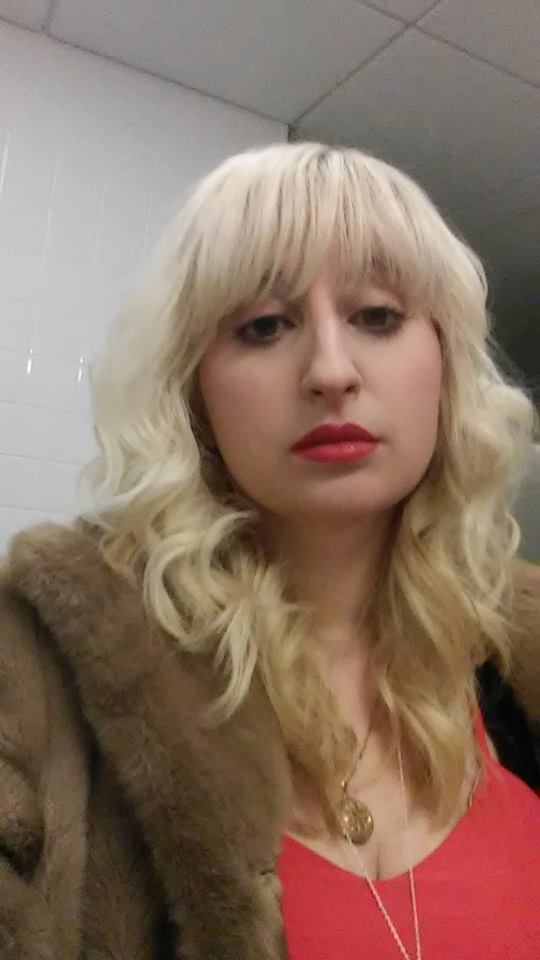


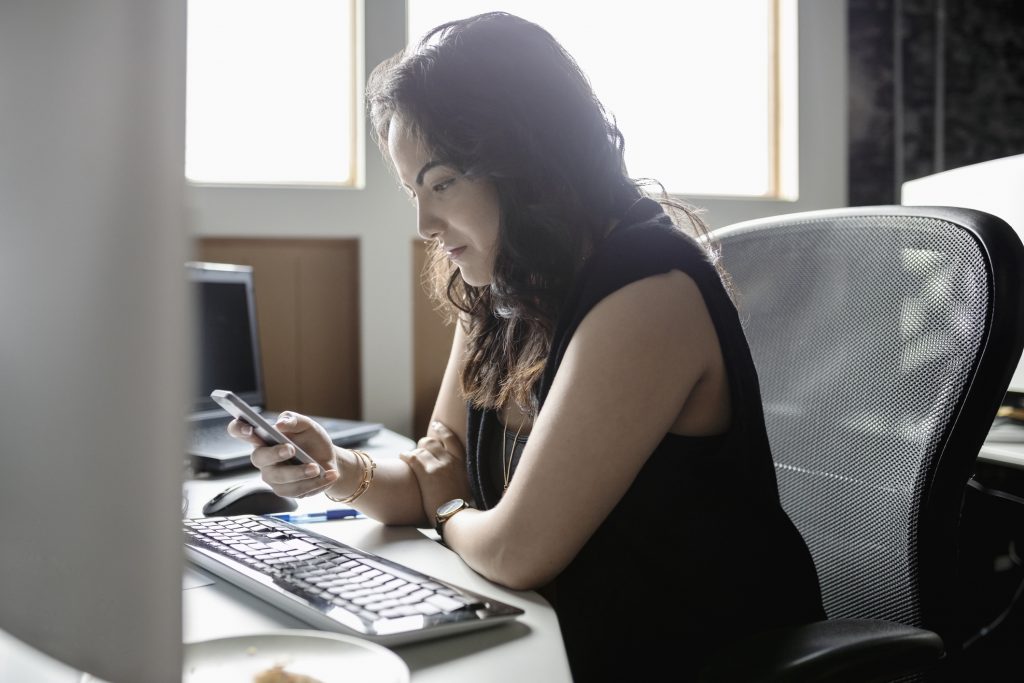
This article is so relate able to me, I was recently diagnosed at 27. I have been struggling with what I had been previously diagnosed as anxiety and depression. My life was a constant cycle of being motivated for a few days or hours, then being lost in the chaos of my thoughts. Which would lead me to feel shame, low self worth, and depression. I would be on top of game for a little bit and then not be able to get out of bed with hating myself. Since my diagnosis I have struggle with anger of what my life “would have been like” if I had been diagnosed earlier, to feeling guilt of explaining to my family and no one taking me seriously. That I only wanted stimulates, making excuses, etc. My mother is very against taking any sort of mental health drugs, so this has been a source of shame for me. I wasnt able to hold a job for more than a year, becoming bored or heavily disorganized, arriving late. Never taking into account that it wasnt my fault. Through working with my therapist and medication I finally see the light. Im not in the clear so to speak yet, but everyday I feel more and more like the person I want and know I can be. Thank you for sharing- it truly made an impact on me.
Your story really resonates with me and I have shared many of your experiences. I grew up in a home where mental illness was ignored, though my mother suffered from numerous mental illnesses and hadn’t addressed them until very recently. Many family members went about the idea of ADHD as an excuse to be lazy. I just got diagnosed with ADHD after four years of struggling in college, being told I had anxiety and depression, changing schools because of poor grades, changing my major several times and assuming I just wasn’t very good at anything and that I may never succeed. It was really hard and I still haven’t fully accepted the diagnosis. I feel that I try to explain it away and tell myself I’m just a lazy person and could do better if I only tried harder, even though deep down I know it isn’t that simple. It’s hard to accept it when you grew up thinking it was a fake disorder for extra time to complete work and misbehave. I’m coming up on a new semester and I’m scared to death with how it’ll go, but I know that with this new realization, and help to learn the skills I’ve never had, I can show my true potential!
These stories bring such a sense of relief but also a profound sadness.
I’m a 53 year old woman who has only just been diagnosed.
I can’t begin to express the magnitude of devastation this has caused in my life.
I certainly don’t want to dwell but I have to allow myself to grieve the loss of the prime years of my life.
I had always had anxiety as a young child, in fact all my life. The era I grew up in didn’t use words like ‘anxiety attacks’ let alone ADHD. (I’m an Australian lol don’t hold that against me) but there seems a huge deficit of knowledge and help, that in itself has been challenging! Even writing this is challenging!
I experienced all the self sabotage behaviours, chronic low self esteem, relentless self doubt due to crap grades at school and a high achieving father who as a doctor had high expectations, without a university qualifications I was already a failure. He divorced my mother when I was 5 (This was 1969 in a small country town – divorce was unheard of).This became the basis of my perception of the world. Others observed me as painfully shy with a nervous disposition and over-sensitive. This set the foundation and course of my life.
I had multiple relationship breakdowns, binge drank through my teens and 20″s. Never settling and traveling and living overseas and multiple places in Australia. I got jobs easily, somehow I had good interpersonal skills, a good sense if humour and appeared to have ‘everything going for me).I felt I faked ALL of it.( the classic imposter syndrome).
Due to poor school results I totally convinced myself I had a low IQ and surely I was adopted or my father wasn’t really my father…
You get the picture!!!!
Fast forward to today ….I was treated with anti-depessants at about 35 which didn’t obviously didn’t help long term…
In 2014, I had what I call a ‘crash’ and suffered depression due to prolonged anxiety and fatigue.
Still it would take another 4 years for me to find the answer. I’d always felt ‘off centre’ and didn’t quite fit anywhere’.
Sadly in 2017 my beautiful sister died suddenly and I hit menopause and then everything unravelled.
A few other major events happened but the loss of my sister brought me to my knees.
In the last 4 months I’ve reluctantly agreed to take medication and it has helped considerably but I still know I have a long way to go……
I will find my balance and I will find my self worth, because to have survived has to be an achievement in itself…….
My apologies in advance for the poor writing of this peice but I have so much information in my head and it’s hard to write.
I grieve for you as I was not officially diagnosed til 61 and didn’t get the right combo of meds til 63, 3 years ago. At menopause I was put on antidepressants and antianxiety drugs that put me in a worse condition than when meno started for 10 long years, when I finally crashed. I won’t go thru my long story but I am still not over grieving how my undiagnosed and narcissistic father shamed me my entire life for symptoms he didn’t like in himself, which led to finding comfort in food then shaming me for weight gain. It affected all my relationships with men until 2 years ago I was diagnosed with PTSD from childhood trauma. So I, too, am on the road to healing.
Wanna hear my funny story? Well, there’s too many to count.
But my favorite one at this second is the time I walked into the men’s restroom at the grocery store. When I saw the urinals it still didn’t hit me that I was in the men’s bathroom. Instead, I wondered to myself with a tiny bit of judgement “Who thought women needed urinals?” Then I heard how crazy that sounded. A couple seconds later I realized “OH S#!T, I’M IN THE WRONG BATHROOM!” And I walked out just as a very old man was walking in. He looked baffled. I just laughed, oh ADHD, you keep me entertained.